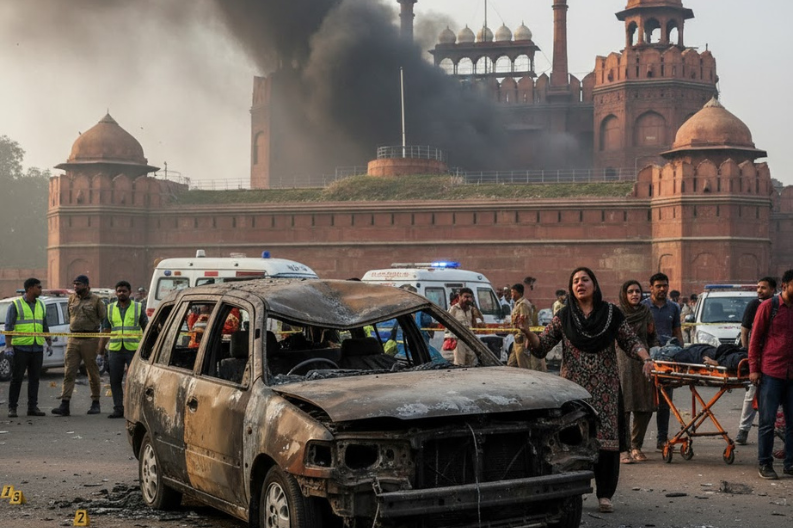The Delhi car blast claims lives on November 10 shocked the country and created deep concern across India. The blast happened near the historic Red Fort and killed 15 people. Because of this tragedy, many people, including Iltija Mufti, began to question the growing risks to safety and the future of the Kashmiri community.
Soon after the incident, Iltija Mufti from the PDP spoke strongly about her fears. She said that it disturbed her to learn that a doctor, whose role is to save lives, took part in the attack. Her comment showed how deeply this event affected her as a Kashmiri. She believes that this incident connects to a wider cycle of discrimination, fear, and anger that many Kashmiris face today.
Moreover, Iltija explained that Islamophobia often pushes some people towards harmful paths. As a result, there are more crackdowns in Kashmir, which then lead to more anger and more fear. Because of this pattern, she worries that the cycle will continue unless leaders try to understand the real problems affecting the community.
Meanwhile, investigations by the Delhi Police uncovered strong evidence of a planned attack. Officers discovered that a small terror group used advanced communication tools to plan their moves. They also learned that some doctors may have helped fund and recruit for the group, which has added another layer of shock for many citizens.
According to investigators, the main suspect, Dr. Umar Un Nabi, drove the explosive-filled car. Officers say he created an encrypted group on the Signal app three months earlier. The group used code names, making conversations hard to track. Other members included Muzammil, Adeel, Muzaffar, and Irfan. Together, they used the group to coordinate their activities.
Furthermore, officers recovered weapons during the investigation. A Krinkov rifle and a pistol were found in the car of another suspect, Dr. Shaheen. The police believe that Dr. Umar arranged these weapons and then passed them to Irfan, who helped recruit others. These findings suggest that the group operated quietly for months.
DNA tests also helped investigators confirm Umar’s identity. They matched his DNA with his mother’s sample, which helped strengthen the case. Because each clue added more clarity, investigators were able to piece together the events more confidently.
In response to the case, Al-Falah University said it had no ties to Umar or Muzammil beyond their time as students. The university made this statement to protect its reputation and ensure that students do not feel unsafe.
Still, this blast has deeply affected the Kashmiri community. Kashmir has faced conflict for many years, and events like this increase pressure on Kashmiris living outside the region. Many face profiling, harassment, and fear because national tensions often affect their daily lives. As a result, families worry even more about how they will be treated after such incidents.
Additionally, people fear that the effects may spread to workplaces, colleges, and neighborhoods. Many Kashmiris already struggle with social judgment, and this event may make that struggle even harder.
The Delhi blast also highlights larger concerns about how easily hatred and fear can spread when communities feel misunderstood. Leaders and experts say that unless these deeper social issues are addressed, similar cycles of violence and repression may repeat. Therefore, many activists want the government to focus on healing divisions and building trust.
As the investigation continues, families of the victims are hoping for justice and clarity. Authorities are still gathering evidence to understand every detail of the case. They also want to stop similar attacks in the future. Because safety is a major concern for citizens, many believe the government must strengthen security around key areas in the capital.
In conclusion, the Delhi car blast claims lives and raises critical questions about safety, social tensions, and the challenges faced by Kashmiris across India. As authorities work to uncover the full truth, the nation hopes for justice, understanding, and long-term peace.



